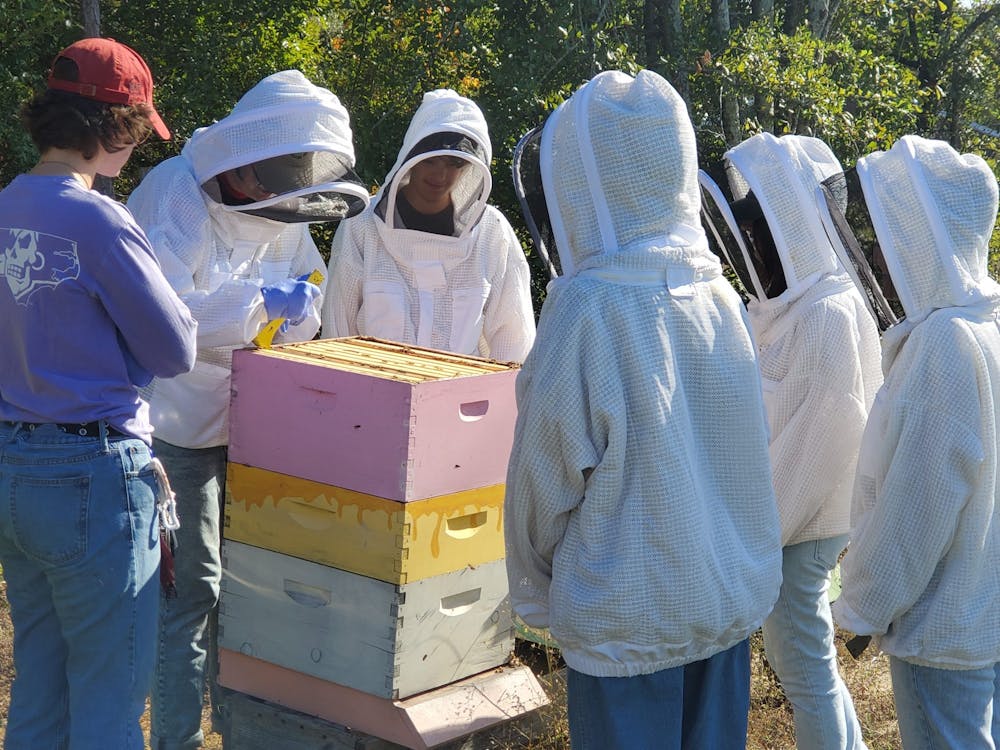Sometimes bees decide they don’t like where they're living, and unfortunately, beekeepers can’t ask them why. This past winter, one of Carolina Beekeeping Club's beehives absconded — they left their hives.
There are several reasons the bees could have flown away, according to the club members.
Secretary Zackary Gann said last December the club split the hive too early. Splitting is the process of moving some of the eggs and larvae to a different hive box, which can prevent bees from swarming. Swarming is when half the bees leave the hive.
However, hives are generally not split in December because the winter weather is a concern, according to Gann.
“They probably got too cold and were like, ‘we’re gonna go find somewhere else to be,’ which is kind of, you know, counterintuitive to leave your home when it gets cold outside,” Gann said.
Co-president Megan Landrum said there may not have been enough food for the bees in the surrounding area.
“Which is kind of something out of our control. I mean, they did leave in winter," Landrum said. "When it was already kind of hard for hives to survive.”
Treasurer Katelyn Stroud said there was also evidence of wax moth larvae infestations in two of the hives.
“Sometimes bees just don't like the hives and they leave … leaving can be kind of difficult sometimes,” Stroud said.
The club plans on getting new bees this spring, once local flora in Columbia is blooming again.
Currently, the club has one hive located in Beaufort, S.C. with the club’s mentor, Danny Cannon. The new hive will be kept in Columbia, which will give the club the opportunity to raise the hive from the beginning and understand what it takes to keep a strong colony from the start.
The beekeeping club members said they are not just excited for the new bees — they are hopeful for new members and events.
“We have like trivia nights or bee-themed paint nights where we kind of get our members together to kind of socialize and get to know each other. I think that's kind of a cool aspect of our club,” Stroud said.
Many of the members of the Carolina Beekeeping Club are STEM majors and environmentally minded students involved in other sustainability groups on campus, according to Landrum. Raising awareness for bees and pollination often compliments other sustainability measures, Stroud said.
“I’ve also been very passionate about sustainability in the natural world since I was a young," Landrum said. “I so I think that and beekeeping go hand in hand. You'll find a lot of the members are also part of like Sustainable Carolina and also have environmental science, environmental studies, biology backgrounds or an interest in those things and care very deeply about sustainability.”
Beekeeping is a reasonably common hobby, according to Gann, especially due to the COVID-19 pandemic since it is an outdoor hobby that can be done alone. Several of the club members said they plan on keeping hives once they are out of college.
Beekeeping also makes a good extracurricular for a resume, Gann said.
“It's something fun I've always mentioned in job interviews, especially on the engineering side of things. I feel like people get really caught up with their academics,” Gann, who is also a mechanical engineering student, said.

